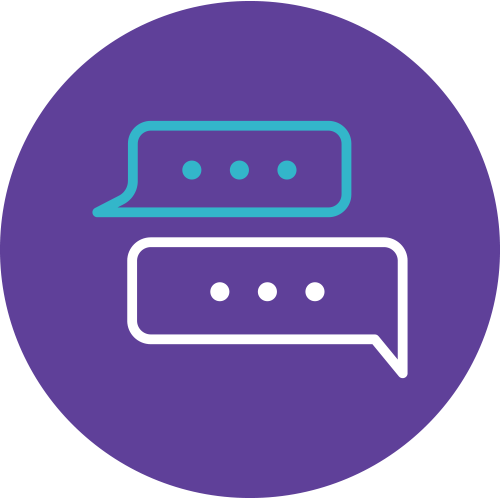Azure Certification: Unlocking Your Hybrid Cloud Potential
If you’re eyeing an ‘azure certification,’ the “Configuring and Operating a Hybrid Cloud With Microsoft Azure Stack Hub” course is your key to unlocking a world of opportunities. In just four days of instructor-led training, you’ll embark on a journey that can reshape your career. Azure Stack Hub isn’t just a platform; it’s your ticket to mastering the hybrid cloud landscape.
What to Expect
In this course, you’ll learn the ins and outs of Azure Stack Hub, from deployment to management and everything in between. You’ll discover the power of offering services through the Azure Stack Hub Marketplace, diving into App Services and Event Hub resource providers. This isn’t just about learning – it’s about becoming a proficient Azure Stack Hub operator, ready to provide cloud services to businesses and individuals.
Career Acceleration
With a solid grasp of Azure Stack Hub, you’ll be well-equipped to meet the demands of the fast-paced corporate world. Whether you’re an aspiring cloud professional or an IT enthusiast, this ‘azure certification’ will set you on the path to success. The course doesn’t just provide knowledge; it instills you with the skills to keep pace with ever-evolving technology. Your certification won’t just be a piece of paper; it’ll be your ticket to a world of opportunities in the realm of hybrid cloud computing. Don’t wait – seize your chance to excel in the world of Azure Stack Hub.
Course Details
Duration: 4 days; Instructor-led
This course teaches Azure administrators and Azure Stack Hub operators how to plan, deploy, package, update, and maintain the Azure Stack Hub infrastructure. Lessons include deploying Azure Stack Hub, managing the Azure Stack Hub Marketplace, offering App Services and Event Hub resource providers, managing Azure Stack Hub registration, and maintaining system health.
Audience
Students for AZ-600: Configuring and Operating a Hybrid Cloud with Microsoft Azure Stack Hub are interested in becoming Azure Stack Hub operators who provide cloud services to end users or customers from within their own datacenter using Azure Stack Hub. Azure Stack Hub operators’ responsibilities include planning, deploying, packaging, updating, and maintaining the Azure Stack Hub infrastructure. They also offer hybrid cloud resources and requested services and manage infrastructure as a service (IaaS) and platform as a service (PaaS).
Prerequisites
Successful Azure Stack Hub students have prior experience with operating systems, virtualization, cloud infrastructure, storage structures, and networking:
- Understanding of on-premises virtualization technologies, including VMs and virtual networking
- Understanding of network configuration, including TCP/IP, Domain Name System (DNS), virtual private networks (VPNs), firewalls, and encryption technologies
- Understanding of Active Directory concepts, including domains, forests, and domain controllers
If you are new to Azure and cloud computing, consider one of the following resources:
Free online: Azure Fundamentals (http://docs.microsoft.com/learn/paths/azure-fundamentals/)
- Instructor-led course: AZ-900: Azure Fundamentals (https://docs.microsoft.com/learn/certifications/courses/az-900t01)
- Prerequisites for Azure administrators (https://docs.microsoft.com/learn/paths/az-104-administrator-prerequisites/
Methodology
This program will be conducted with interactive lectures, PowerPoint presentation, discussion and practical exercise.
Course Objectives
· Prepare for Azure Stack Hub deployment
· Manage infrastructure certificates for Azure Stack Hub
· Manage Azure Stack Hub registration
· Configure an Azure Stack Hub home directory.
· Provision a service principal for Azure Stack Hub
· Recommend a business continuity disaster recovery (BCDR) strategy.
· Manage Azure Stack Hub by using privileged endpoints.
· Manage Azure Stack Hub Marketplace
· Offer App Services and Event Hub resource providers.
· Manage usage and billing.
Outlines
Module 1 - Overview of Azure Stack Hub
Lessons
- Why use Azure Stack Hub?
- Azure Stack Hub architecture
- How Azure Stack Hub is managed
- About Resource providers
- Differences between global Azure, Azure Stack Hub, and Azure Stack HCI
Lab: Connecting to Azure Stack using Azure PowerShell
After completing this module, students will be able to:
- Describe edge and disconnected solutions.
- Describe Azure Stack Hub integrated systems architecture.
- Explain Azure Stack Hub deployment options.
- Define differences between Azure Stack Hub, Azure Stack HCI, and global Azure.
Module 2 -Provide Services for Azure Stack Hub
Lessons
- Manage Azure Stack Hub Marketplace
- Offer an App Services resource provider.
- Offer an Event Hubs resource provider.
- Offer services (quotas, plans, offers, and subscriptions)
- Manage usage and billing.
Lab: Configuring Offers Plans Services using the Azure Stack Admin Portal
Lab: Add a Linux Image to Azure Stack (Disconnected Scenarios)
Lab: Create custom Marketplace Items
After completing this module, students will be able to:
- Create a custom Azure Stack Hub Marketplace item
- Deploy and update an App Services resource provider.
- Plan an Event Hubs resource provider deployment.
- Create and manage user subscriptions.
- Manage usage and billing in multi-tenant and CSP scenarios.
Module 3 - Implement Data Center Integration
Lessons
- Prepare for Azure Stack Hub deployment
- Manage infrastructure certificates for Azure Stack Hub
- Manage Azure Stack Hub registration
Lab: Registering Azure Stack with an Azure Subscription
Lab: Add a Windows Server Image to Azure Stack (Disconnected Scenarios)
Lab: Add a Windows Server Image to Azure Stack (Connected Scenarios)
Lab: Implement MySQL Server Resource Provider in Azure Stack
After completing this module, students will be able to:
- View and retrieve usage data by using the Usage API.
- Recommend a name resolution strategy.
- Validate identity provider integration.
- Validate certificates.
- Recommend a registration mode.
Module 4 -Manage Identity and Access for Azure Stack Hub
Lessons
- Manage multi-tenancy.
- Manage access.
After completing this module, students will be able to:
- Register the guest tenant directory with Azure Stack Hub
- Update the guest tenant directory.
- Configure access in Azure Stack Hub
- Create a custom role.
Module 5: Manage the Azure Stack Hub Infrastructure
Lessons
- Manage system health.
- Plan and configure business continuity and disaster recovery.
- Manage capacity.
- Update infrastructure
- Manage Azure Stack Hub by using privileged endpoints.
Lab: Validating ARM Templates with Azure Stack
Lab: Using the privileged endpoint in Azure Stack
After completing this module, students will be able to:
- Include resource providers such as Event Hubs.
- Manage field replacement or repair.
- Configure storage targets for infrastructure backups.
- Update Azure Stack Hub
- Unlock a support session.
- Connect to a privileged endpoint.
- Perform system diagnostics by using Test-Azure Stack
- Manage partitioned GPUs.










